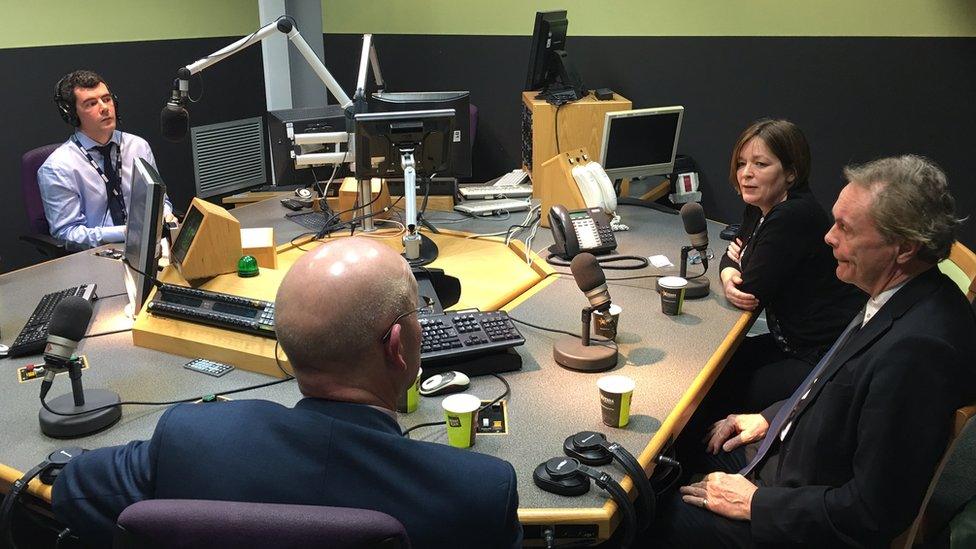How Wales Works: Huge challenges to change curriculum
- Published
Arwyn Jones chairs a BBC Wales debate about education as part of the How Wales Works season
Three leading education figures in Wales have warned of huge challenges involved in introducing a new school curriculum by 2021.
Policy expert Anna Brychan, ATL teaching union director Philip Dixon and David Reynolds, professor of education at Southampton University and a Welsh government adviser, were taking part in the BBC's How Wales Works education debate.
It is hoped the new curriculum, based on an independent review by Prof Graham Donaldson of Glasgow University, can be made available to teachers by 2018.
The aim is to drastically improve standards, after Wales fell significantly behind the rest of the UK in key subjects.
Prof Reynolds said the changes would certainly involve asking a lot from teachers, and recommended learning from other countries.
"To expect it of our teachers, especially when we did not necessarily build capacity amongst our teachers - thus the low Pisa scores - to expect suddenly them to do it from scratch, to re-invent wheels, would be a pity," he said.
"I'd get the wheels from other countries, I'd get the wheels from research, I'd try and resource our professionals to get the optimum outputs and I do worry that that is not being done to a big enough degree."
Mr Dixon warned against expecting a quick transformation.

"It's too big an ask if you want to put a very tight time frame on it, and to say that this is going to be done and dusted in less than three years and then rolled out completely within six," he said.
"It's taken us nigh on ten years to get the Foundation Phase [for primary school pupils] up and running, and reduce some of the variability and getting some good things back on that.
"We need to do this well, we need to do it once, and my worry is we're going to do it quickly and then end up with something which is not at all what so many people and so much of the excitement about the Donaldson reforms have been about."
Ms Brychan said there was much excitement about, and support for, bringing in the new curriculum, but "nervousness" about the "very short time frame".
"The schools that are involved in developing the curriculum are enthusiastic and eager to do this, but they are going to have to do it alongside the day job of making sure that their current complement of pupils get through the current system," she said.
"I think support for them, and the support around the development of that, is going to be a critical, critical thing."
The discussion, chaired by Arwyn Jones, also covered the Foundation Phase - click here to listen.
- Published25 February 2015

- Published3 December 2013
